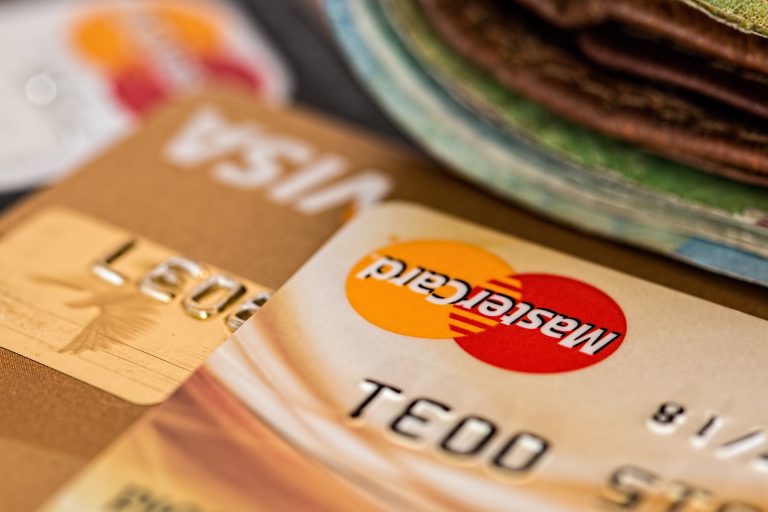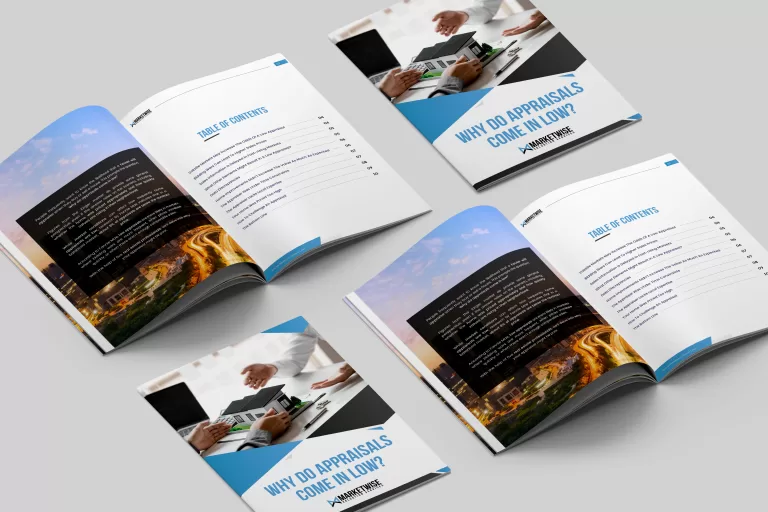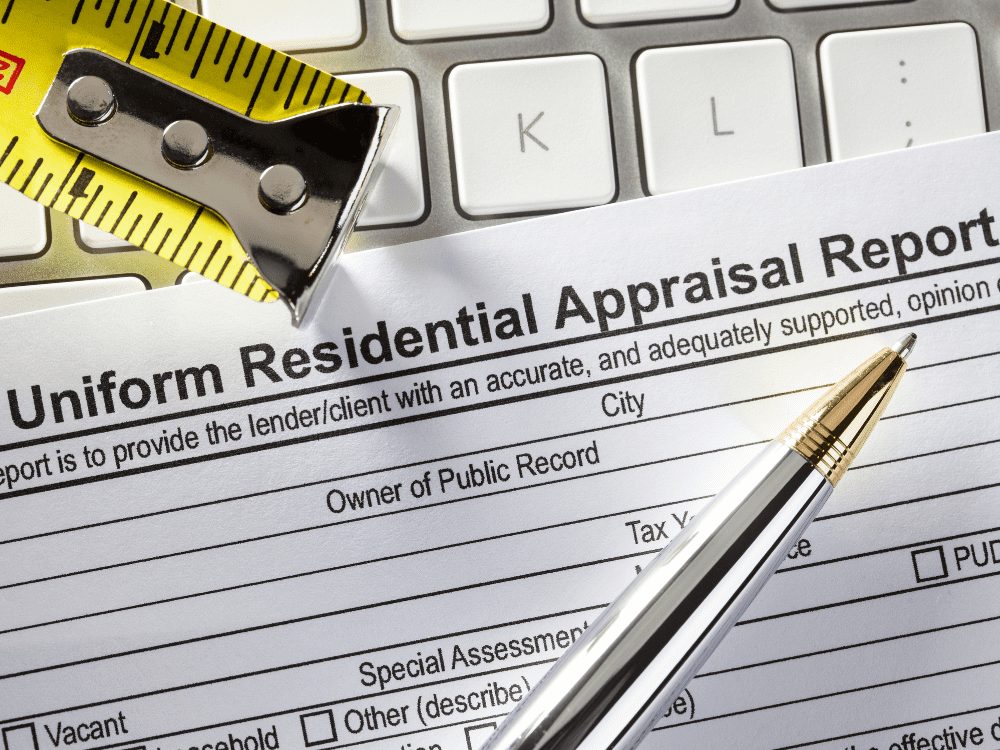How to Get a Mortgage with Bad Credit
Purchasing a home is a dream for many, but it can be a daunting task especially for those with bad credit. It’s like trying to climb a mountain with a broken leg, it’s going to be a lot harder, but it’s not impossible. Just like how a determined climber would train, prepare and seek help from a guide to reach the summit, similarly with the right strategy, preparation and guidance, getting a mortgage with bad credit can be achieved. In this article, we will be discussing “How to Get a Mortgage with Bad Credit” and provide valuable tips and information that can increase your chances of becoming a homeowner.

Here’s a preview of what’s to come:
- Introduction
- Understand Your Credit Score
- Improve Your Credit Score
- Get Pre-Approved For A Mortgage
- Work With A Specialist
- Consider A Government-Backed Loan
- Be Prepared To Make A Larger Down Payment
- Be Patient
- Conclusion
Understand Your Credit Score
The first step in getting a mortgage with bad credit is to understand your credit score. Your credit score is a numerical representation of your creditworthiness, and it is used by lenders to determine whether to approve your loan application. The higher your credit score, the better your chances of getting approved for a home loan.
There are three major credit reporting agencies in the United States: Experian, Equifax, and TransUnion. You can request a free credit report from each of these agencies once a year. Review your credit reports and check for any errors or inaccuracies. Dispute any errors you find, as they can have a negative impact on your credit score.
A credit score is calculated based on several factors, including payment history, credit utilization, length of credit history, types of credit, and new credit. Payment history, which includes timely payments and the number of delinquencies, accounts for 35% of your credit score. Credit utilization, which is the amount of credit you are using compared to the amount of credit available to you, accounts for 30% of your credit score. Length of credit history, types of credit, and new credit each account for 15% of your credit score.
It’s important to note that there are different credit scoring models used by lenders. The most widely used credit scoring model is the FICO score, but other models such as the VantageScore are also used. Each model has its own calculation method, so it’s possible to have different credit scores from different credit reporting agencies and credit scoring models.
It’s also important to keep in mind that credit scores can change over time, so it’s important to review your credit reports regularly and take steps to improve your credit score.

Improve Your Credit Score
Once you understand your credit score, it’s time to take steps to improve it. Improving your credit score is like going to the gym to get in shape, it takes time and effort but the results are worth it.
One of the most important things you can do to improve your credit score is to pay your bills on time. Late payments can have a significant impact on your credit score and can be like a black mark on your credit report. It’s like being late for a job interview, it doesn’t leave a good impression. Set reminders for yourself or set up automatic payments to ensure that your bills are paid on time.
Reducing your debt is another important step in improving your credit score. High levels of debt can negatively impact your credit score and can be like carrying a heavy backpack, it’s going to slow you down. Consider consolidating your debt or creating a budget to help reduce your debt.
Keeping credit card balances low is also important for improving your credit score. High credit card balances can hurt your credit score and can be like trying to swim with a heavy anchor. Keep your credit card balances low and make sure to pay them off in full every month.
Lastly, it’s important to dispute credit report errors. Errors on your credit report can harm your credit score and can be like a wrong turn on a road trip, it’s going to take you off course. Review your credit reports and check for any errors or inaccuracies. Dispute any errors you find with the credit reporting agency. This process can be time-consuming, but it’s worth it to ensure that your credit score is as accurate as possible.
Get Pre-approved for a Mortgage
Getting pre-approved for a mortgage is an important step in getting a mortgage with bad credit. Pre-approval means that a lender has reviewed your financial information and determined how much they are willing to lend you. This can help you find a home that is within your budget and increase your chances of getting approved for a home loan.
When getting pre-approved, a lender will review your income, employment history, credit score, and debts. They will also verify that you have enough assets, such as savings or investments, to cover the down payment and closing costs. Once you are pre-approved, you will receive a pre-approval letter, which can be used as proof of your qualifications when you are shopping for a home.
It’s important to note that pre-approval is not the same as pre-qualification. Pre-qualification is a less formal process where a lender estimates the amount you can borrow based on the information you provide. Pre-approval is more formal and involves a lender reviewing your financial information and issuing a pre-approval letter.
When looking for a lender to pre-approve you for a mortgage, it’s important to shop around and compare offers from multiple lenders. This will help you find the best interest rate and loan terms for your situation. Additionally, you should be aware that some lenders may specialize in working with people with bad credit. These lenders may have more flexible guidelines and loan options that are tailored to people with bad credit.
It’s also important to remember that getting pre-approved for a mortgage with bad credit may require a higher down payment and a higher interest rate. However, being pre-approved can put you in a stronger negotiating position when making an offer on a house, and it will give you a clearer idea of what you can afford.

Work with a Specialist
When trying to get a mortgage with bad credit, working with a specialist can be like having a personal trainer at the gym, they can guide you and help you reach your goals. A specialist who is experienced in working with people with bad credit can provide valuable guidance and help you find the loan program that best suits your needs.
Specialist lenders may have more flexible guidelines and loan options that are tailored to people with bad credit. They can help you understand the mortgage process and guide you through the application process. They can also help you find the best loan program for your specific situation and help you improve your chances of getting approved for a home loan.
Additionally, working with a specialist can also help you find the best interest rate and loan terms for your situation. It’s like having a personal shopper, they can help you find the best deal for you.
It’s important to note that working with a specialist doesn’t guarantee that you will get approved for a mortgage, but it can improve your chances. However, you should be aware that some lenders may charge higher fees for working with a specialist and it’s important to shop around and compare offers from multiple lenders.
Consider a Government-backed Loan
Government-backed loans, such as FHA loans and VA loans, may be an option for people with bad credit. These loans are backed by the Federal Housing Administration (FHA) or the Department of Veterans Affairs (VA), and they have more lenient credit requirements compared to conventional loans. This makes them a good option for people with lower credit scores.
FHA loans are a popular option for first-time homebuyers and people with bad credit. They require a down payment of as little as 3.5% of the purchase price and have a lower credit score requirement compared to conventional loans. They also allow for higher debt-to-income ratios, which can make it easier for borrowers to qualify.
VA loans are available to eligible veterans, active-duty service members, and certain military spouses. They do not require a down payment and have no minimum credit score requirement, making them a great option for veterans and active-duty service members who may have bad credit.
However, it’s important to note that government-backed loans also have stricter requirements such as mortgage insurance. With FHA loans, borrowers are required to pay for mortgage insurance, which can add to the overall cost of the loan. VA loans require a funding fee, which can also add to the overall cost of the loan.
It’s important to carefully consider the pros and cons of government-backed loans and compare them to other loan options before making a decision. A specialist who is experienced in working with people with bad credit can provide valuable guidance and help you find the loan program that best suits your needs.
Be Prepared to Make a Larger Down Payment
When getting a mortgage with bad credit, you may need to make a larger down payment. This can be like adding a cherry on top of a sundae, it’s not necessary but it makes it even better. A larger down payment can help offset the risk to the lender and increase your chances of getting approved for a home loan.
A down payment is the amount of money you put towards the purchase of a home, and it’s usually expressed as a percentage of the purchase price. The larger the down payment, the less money you need to borrow, and the less risk you pose to the lender.
Conventional loans typically require a down payment of at least 20%, but government-backed loans, such as FHA loans and VA loans, have lower down payment requirements. However, even with a government-backed loan, it’s still a good idea to make a larger down payment if possible, as it can increase your chances of getting approved and help you qualify for a better interest rate.
Saving for a larger down payment can take time, but it’s worth it in the long run. It’s like saving for a vacation, the longer you save, the better the vacation. Consider setting up a budget and cutting back on unnecessary expenses, to help you save for a larger down payment. Additionally, you can also consider government programs like FHA’s First Time Homebuyer Program or VA’s Home Loan Program which can help you with the down payment.

Be Patient
Improving your credit score and saving for a down payment can take time. It’s important to be patient and not rush into buying a house before you’re ready. The process of improving your credit score and saving for a down payment can take several months, or even years. It’s important to set realistic goals and not be discouraged if it takes longer than you expect.
It’s also important to remember that buying a house is a long-term investment. You’ll be making a big financial commitment and will be responsible for the property for many years to come. Taking the time to improve your credit score and save for a down payment can help ensure that you’re ready for the responsibility of homeownership and that you’re getting the best possible mortgage rate.
Additionally, while searching for a house, it’s also important to be patient and not rush into making an offer on a house that isn’t the right fit. While it may be tempting to make an offer on the first house that you fall in love with, it’s important to take the time to see as many houses as possible and find the one that truly meets your needs.
Conclusion – How to get a mortgage with bad credit
In conclusion, getting a mortgage with bad credit can be challenging, but with the right strategy, preparation and guidance, it’s possible. It’s like climbing a mountain, it’s going to be a lot harder, but with the right gear, training and a guide, you can reach the summit.
“How to Get a Mortgage with Bad Credit” requires understanding your credit score, improving your credit score, being prepared to make a larger down payment, and working with a specialist. Understand your credit score by reviewing your credit reports, improve your credit score by paying your bills on time, reducing your debt and keeping credit card balances low. Be prepared to make a larger down payment, saving for a larger down payment can take time but it’s worth it in the long run. Work with a specialist, who can guide you and help you find the best loan program for your specific situation.
It’s important to remember that buying a house is a long-term investment. You’ll be making a big financial commitment and will be responsible for the property for many years to come. Taking the time to improve your credit score and save for a down payment can help ensure that you’re ready for the responsibility of homeownership and that you’re getting the best possible mortgage rate.
Download your free
e-book today!

If you would like to download our ebook, simply sign up for our newsletter by filling out the form below.

- Marketwise Valuation Services, Inc.
- 7100 Biscayne Blvd, Suite 207
- (888) 602-9299
- appraisals@marketwisevaluation.com
- www.marketwisevaluation.com

